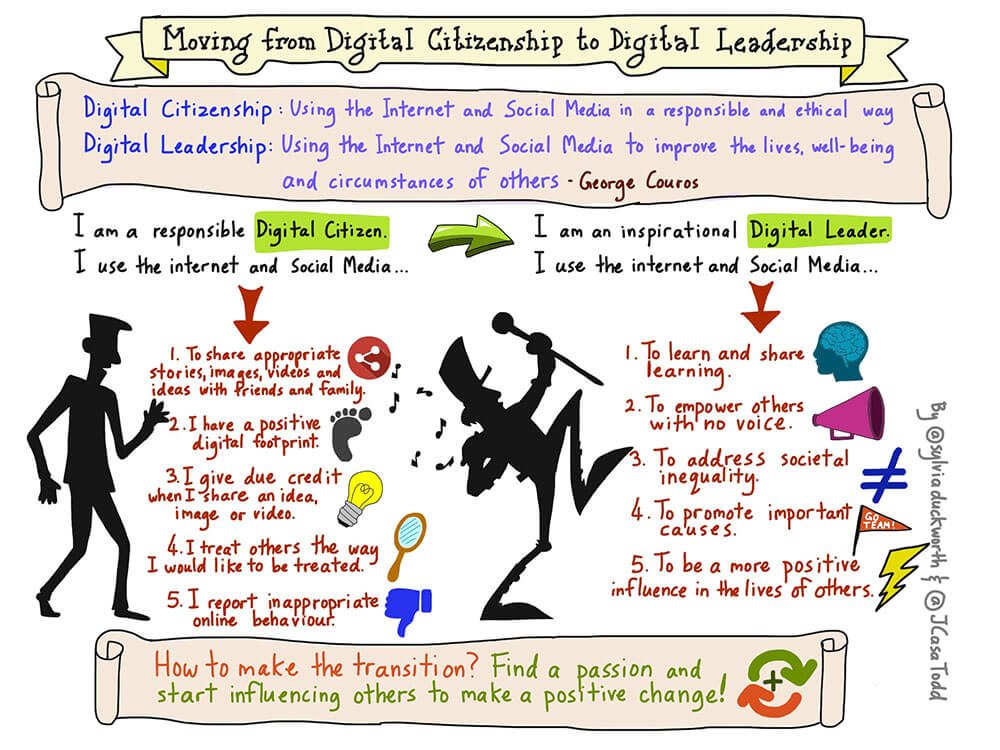The concept of digital citizenship was one which I didn’t think much about before tackling this subject. I knew from the beginning of the subject that there would be language and concepts which I had not encountered before along with the creation of skills which I did not know if I was capable of (Marreiros, 2023d). I have come to understand that digital citizenship is far more than being safe online which did bring me to try to incorporate this understanding into my own school’s behaviour for learning program (Marreiros, 2023c). This website was created to be a living document which changes and adapts for the current needs of the school life, and I know a future adaptation will be looking at the highlights, ethics and pitfalls of using artificial intelligence (AI) so that the primary students have up-to-date understanding about plagiarism (Elgersma, 2023). In doing this not only will I, as a teacher librarian, be challenging student perceptions, but I too will be leading the way with colleagues and parents in their understanding of this component of a digital learning environment (DLE).
The opportunity to share this expertise is something which Cox & Korodaj (2019) discuss in their article about leadership, where they conducted their own environmental scan and reported on the importance of this reflective practice – something which hadn’t occurred to me around the environment of digital learning until beginning to tackle assessment two. In my position at the school, I believe that I can use my influence as a teacher of all students and collaborator in all school teams to offer my expertise and knowledge of the school DLE and personal DLEs, particularly since conducting the environmental scan of the school DLE. As was discussed in a forum post (Marreiros, 2023b), the conversation starters for staff about digital footprints is just one way to share, and with the information gathered in assessment two, I will be approaching school leadership to see how the recommended actions can be fulfilled.
The extension of my knowledge around an effective DLE has come through much self-reflection of my own digital interactions. I have become aware of my own DLE social, ethical and moral mistakes through using critical thinking skills (Marreiros, 2023a) and understand even more why Australian schools must teach the capabilities of creative and critical thinking, particularly in a DLE (Australian Curriculum Assessment and Reporting Authority, 2022). The nature of a DLE being available 24/7 does make it imperative that students are taught about the best ways to navigate this environment, which of course links back to being an active, safe and respectful digital citizen (Marreiros, 2023c).
One of the biggest takeaway moments I have had from this subject is that I have taken for granted what digital citizenship is. What I need to do now and instil in those I teach is that while citizenship has been granted, we need to make the most of this fabulous and dynamic environment.
References
Australian Curriculum Assessment and Reporting Authority. (2022). General capabilities (version 9). https://v9.australiancurriculum.edu.au/f-10-curriculum/f-10-curriculum-overview/general-capabilities
Cox, E., & Korodaj, L. (2019). Leading from the sweet spot : Embedding the library and the teacher librarian in your school community. Access, 33(4), 14-25.
Elgersma, C. (2023, February 14). ChatGPT and beyond: How to handle AI in schools. Common Sense Education. https://www.commonsense.org/education/articles/chatgpt-and-beyond-how-to-handle-ai-in-schools
Marreiros, K. (2023a, May 9). 5.4 reponse [Forum Post]. ETL523, Interact 2. https://interact2.csu.edu.au/webapps/discussionboard/do/message?action=list_messages&course_id=_66276_1&nav=discussion_board_entry&conf_id=_136250_1&forum_id=_310070_1&message_id=_4446262_1
Marreiros, K. (2023b, March 10). Module 1.2 [Forum Post]. ETL523, Interact 2. https://interact2.csu.edu.au/webapps/discussionboard/do/message?action=list_messages&course_id=_66276_1&nav=discussion_board_entry&conf_id=_136250_1&forum_id=_310057_1&message_id=_4374392_1
Marreiros, K. (2023c). PBL in a digital world. https://sites.google.com/education.nsw.gov.au/pbl-in-a-digital-world/home
Marreiros, K. (2023d, February 21). So many questions! Stepping Bravely Into the Unknown – This Teacher’s Journey to becoming a Teacher Librarian. https://thinkspace.csu.edu.au/sbitu/2023/02/21/so-many-questions/

